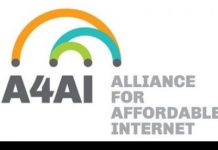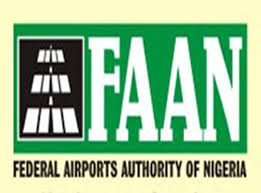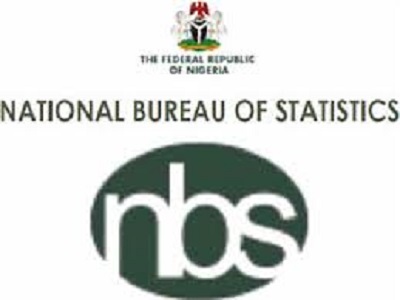A4AI document describes proposed communication service tax as regressive

The Alliance for Affordable Internet (A4AI)-Nigeria Coalition has urged the federal government to consider other measures to generate revenue as against the proposed Communication Service Tax (CST).
This statement is contained in a document endorsed by Dr. Ernest Ndukwe, the national Coordinator, Alliance for Affordable Internet (A4AI), and made available to Daily Times in which the coalition observed that the goal of the proposed CST is to improve revenue generation as stated in the Bill, hence A4AI recommended that government should consider other alternatives.
“Our position, therefore, is that the National Assembly reconsiders the passage of the CST bill. However, if the tax must be introduced the government must consider a lower tax rate that enables it to achieve fiscal revenue targets without undermining broadband affordability and access”, the document reads.
A4AI while referring to the current mobile broadband affordability situation in Nigeria, noted that it has continued its engagement with government and other stakeholders in the ICT space in Nigeria in the pursuit of advancing internet affordability and access in Nigeria.
A4AI said that increased access to the Internet has significant and well-known positive socio-economic benefits for the individual user, their community, their business, and the country as a whole.
“However, reality of Internet access in Nigeria is that it’s all about mobile. Only about 13 percent of Nigerians get broadband access via mobile and less than 1 percent from fixed services. (Sources ITU 2015, and GSMA Intelligence 2016).
“Nigeria aims to achieve 30perecnt broadband penetration by December 2018, as contained in the National Broadband Plan. Current figure is clearly some way off this target and needs measures to boost growth in usage.
“A4AI studies have confirmed that one of the main reasons the rate of Internet adoption and use is rather slow in Nigeria is the high cost of data subscription.”
According to the ITU, a 500MB plan costs typically 5.4 percent of average monthly income in 2014.
The current definition of affordability used by the UN Broadband Commission is where the price of a broadband plan is less than 5 percent of average monthly income. If we are to use this definition Nigeria is on the cusp of affordability.
However, A4AI’s 2015/16 Affordability Report shows that while in Nigeria the average income in 2014 was US$2970, GNI per capita, according to World Bank, 40 percent of the population actually earned less than half that amount. In practice this means that a 500MB mobile Internet plan priced at 5.4 percent of “average” monthly income actually costs the majority of Nigerians anywhere between 7-18 percent of their monthly income.
“It is therefore right to say that any measures that will increase the cost of services for consumers are regressive, taking Nigeria backwards in terms of its attempt to achieve affordability,” A4AI said.
On current mobile sector tax regime in Nigeria, the Alliance said that mobile operators paid approximately USD 850 million in taxes and regulatory fees to the government in 2014 and USD 760 million in 2013.
“The taxes and regulatory fees currently applicable to mobile phone operators fall under several categories, including duties on imported equipment, regulatory fees, taxes on profits, environmental taxes. Also those taxes that are more relevant to the consumer include taxes on handsets, SIM cards, and services. GSMA suggests that it is this latter set of taxes that we are of utmost concern as they have the most direct impact on the affordability of Internet access for Nigerians.
“Currently a VAT of 5 percent applies to devices and communication services purchased by the consumer.
In addition, handsets (12%) and SIM cards (20% and 35% special levy) attract additional custom import duties and levies.
Specifically, “Communications Service Tax” (CST) is proposed to be a “9% charge for the use of the communication service” (Section 4 of the Bill), where communication service refers to voice, SMS, MMS, data, and pay per view TV.
A4AI said that with focus on internet affordability; i.e., data costs, it is obvious that the tax is to be borne by all consumers.
Commenting on the implications for affordability of mobile data, A4AI said, “Compliance and responsibility for collecting payments placed on mobile operators. Compliance is likely to add a number of operational costs to operators. For example, rather than annually, all service providers are to file tax returns and pay the tax due not later than the last working day of the month immediately after the month to which the payment relates. So while the 9% tax is to be paid by consumers, experience indicates that there may be an additional burden placed on consumers as operators’ operational costs rise.
“While the impacts of the CST on the sector as a whole are major, the above analysis shows the direct, possibly unintended, impact on the consumer and specifically those in low-income groups and women.
Balanced fiscal policy must consider affordability of mobile broadband and should not put in place additional barriers that make Internet access unaffordable for millions of Nigerians.
“This is important given the relative low levels of broadband Internet use in the country. Nigeria is lagging far behind the more developed countries of the world and introduction of the CST will further widen the gap.
The goal of the proposed CST is to improve revenue generation as stated in the Bill (See Explanatory Memorandum in Bill). With that in mind, we recommend that government should consider other alternatives.
Our position, therefore, is that the National Assembly reconsiders the passage of the CST bill.
However, if the tax must be introduced the government must consider a lower tax rate that enables it to achieve fiscal revenue targets without undermining broadband affordability and access.








